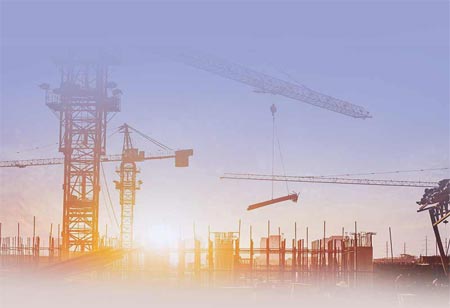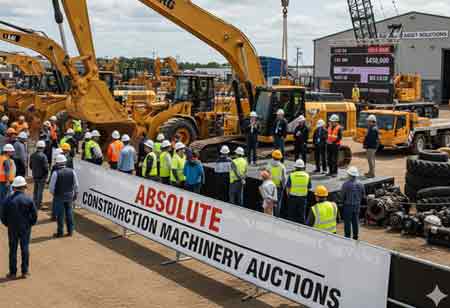Thank you for Subscribing to Construction Business Review Weekly Brief
Specials
- Modular Construction Europe
- Apartment and Condominium Contractors Canada
- Kitchen and Bath
- Decking Canada
- Architectural Glass Europe
- MEP APAC
- Construction Saudi Arabia
- German Apartment and Condominium Contractors
- Construction Law APAC
- Outdoor Construction
- Foundation Construction Canada
- MEP Canada
- Building Sealing Solutions Europe
- Cold Storage Construction APAC
- Precast Concrete Europe
- Construction Staffing Europe
- Pre-Construction Services
- Flooring System APAC
- Scaffolding Canada
- Swimming Pool Construction Canada
- Construction Management Canada
- Flooring Systems Europe
- Residential Construction
- Concrete Canada
- Construction Cladding Europe
- Construction Cladding APAC
- Concretes, Aggregates and Construction Materials APAC
- Concretes, Aggregates and Construction Materials Europe
- Commercial Contractors Europe
- Commercial Contractors APAC
- Dummy
- Construction Insulation, Coating and Waterproofing
- Construction Management APAC
- Landscaping Canada
- Construction Coating Europe
- Construction Tech Startups Europe
- Insulation Services Europe
- Mechanical Contractor Canada
- Mould Remediation and Testing Europe
- Swimming Pool Construction APAC
- Safety and Compliance Europe
- Construction Bidding and Auctions
- Mechanical Electrical and Plumbing
- Roofing Systems Europe
- Architectural Glass APAC
- Startups APAC
- Construction Forensic and Owners Representative
- Flooring System
- Waterproofing APAC
- Wall Systems
- Construction Cladding
- Construction Engineering Services
- Modular and Prefab Construction
- Architectural Glass
- Construction MENA
- Construction Demolition and Recycling Europe
- Construction Interiors
- Steel Building APAC
- HVAC
- Doors and windows
- Modular Construction APAC
- Roofing and Siding Systems
- Building Information Modeling APAC
- Sustainable Construction APAC
- Building Restoration and Maintenance
- Commercial Contractors
- Specialty Construction
- Construction Engineering Canada
- Construction Engineering MENA
- Modular Construction Canada
- Cold Storage Construction Canada
- Construction Latam
- Workforce Management and Staffing
- Roofing Systems APAC
- Construction Consulting
- Steel Building Europe
- Construction Demolition and Recycling APAC
- Safety and Compliance APAC
- Concretes, Aggregates and Construction Materials
Unleashing the Potential of Modular Construction
In today’s business landscape, the construction industry has been experiencing a revolutionary evolution propelled by the rise of modular construction

By
Construction Business Review | Friday, September 01, 2023
Stay ahead of the industry with exclusive feature stories on the top companies, expert insights and the latest news delivered straight to your inbox. Subscribe today.
Modular construction is driving a new era in the construction industry, reshaping the way of creating structures by pinpointing focus on speed, cost efficiency, quality assurance and sustainability.
FREMONT, CA: In today’s business landscape, the construction industry has been experiencing a revolutionary evolution propelled by the rise of modular construction. This novel method is swiftly transforming the way structures are erected, offering various advantages over traditional methods. Contractors specialising in modular construction position themselves at the forefront of this transition, driving effectiveness, sustainability and cost-efficiency.
Modular construction encompasses assembling pre-fabricated units in a controlled factory environment. These modules are then transported to the construction site and pieced together to build the final structure. Unlike traditional on-site construction that is vulnerable to weather delays and on-site challenges, modular construction utilises indoors within a controlled environment, mitigating weather-related disruptions and enabling year-round production.
This proactive methodology enhances project completion timelines. Additionally, the assembly-line approach in modular construction optimises processes, leading to streamlined resource allocation and minimised dependency on skilled on-site labour.
Collaborating with expert contractors in modular construction yields cost-effectiveness. The controlled environment of the factory enables precise planning and material optimisation and aids in waste reduction. Additionally, the assembly line production of modules frequently results in economies of scale, leading to low material costs. The shortened construction timeline further adds to the fiscal gains by reducing labour outlays and overhead costs. These advantages make modular construction more appealing across a wide range of construction projects. Furthermore, the predictability of costs is higher in modular construction due to its standardised procedures, minimising the risk of budget overruns.





